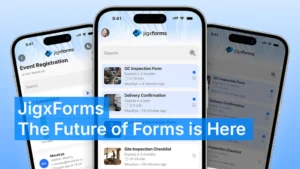Discover essential insights for developers on crafting privacy-conscious mobile apps that respect users’ rights and prioritize data protection in today’s digital landscape.
- Insights into data minimization and obtaining informed consent to build honest user relationships.
- Techniques for implementing robust security measures, including encryption and two-factor authentication.
- Strategies for promoting transparency, such as providing clear privacy policies and empowering users with control over their data.
In today’s rapidly evolving digital landscape, where mobile apps have become an integral part of our daily lives, the paramount concern remains: user privacy.
As the app ecosystem continues to expand, developers find themselves at the crossroads of innovation and responsibility, tasked with not only crafting engaging and functional applications but also safeguarding the sensitive information entrusted to them.
In this era of heightened data awareness, we will explore the evolving regulatory landscape, and equip developers with essential insights to navigate the intricate realm of data protection.
Data Minimization and Consent
It’s all about staying transparent with users. If you’re honest, you will build an honest and fruitful relationship.
Obtain clear and informed consent from users before collecting any personal data, it doesn’t have to be harder than that. For example, clearly explain why you need the data and how it will be used, and give the users an option to opt out of data collection.
As a developer, you have to be mindful of only collecting a minimal amount of data. Try to only collect the data that is necessary to provide your app’s core functionalities and avoid gathering unnecessary user information.
Security Measures and Data Protection
There are many techniques when it comes to protecting data. One of them is encryption which protects data both in transit (while being transmitted between the user’s device and your servers) and at rest (when stored on servers or devices).
You’ve seen it before, the two-factor authentication. Even though it seems like a lot, two-factor authentication and a strong password are great ways to prevent unauthorized access to user accounts and data.
Another great way to protect data is to stay updated with security patches and updates. You can identify and address vulnerabilities with regular security audits.
Transparency and User Control
Again, provide a clear and easily accessible privacy policy that clearly outlines what data your app collects, how it’s used, and how it is shared.
I think most of us have experienced the frustration of not being able to unsubscribe to emails, newsletters, or subscriptions. As a user, it is easy to feel trapped when not having the option to opt-out. So if your app has advertising or tracking mechanisms, give users the ability to opt out of personalized advertising and data tracking.
A last advice is to give the users control over their data. Allow them to review and modify their information, as well as being able to delete or account or data.
These three considerations are fundamental to building a privacy-conscious mobile app that respects users’ rights and protects their sensitive information.
Upholding privacy isn’t just a regulatory requirement; it’s a commitment to respecting the rights and expectations of the users who entrust their information to your mobile app creation.
By adopting data minimization, implementing strong security measures, and promoting transparency, you as a developer, can create a trustworthy app that prioritizes user privacy in today’s digital landscape.



